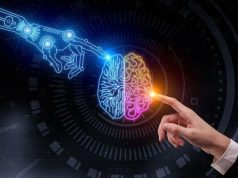Sheik Rahmanuddin, is a program officer at Centre for Internet Society (CIS) for “access to knowledge” program an affiliate of wikimedia in India. CIS works on diverse fields of internet governance, privacy, internet accessibility to all etc. Rahman’s role is to provide technical help to wikipedia communities relating to advance editing. He also guides the quality improvement of articles through fonts, content and pictures. He keeps visiting academic institutions to inculcate interest in students towards contributing to wikipedia. His special focus is on wikipedia in vernacular languages.
How is your experience working in this field?
I have been here for five months. It’s a good experience as this is my passion. Even during my previous employment at an MNC I used to spend many hours editing wikipedia, now I do it all day as a part of my job.
Why is knowledge in vernacular so important to globalized India?
Because there is so much of knowledge to be shared in vernacular language. Also it’s easier to learn in one’s mother language. Sharing of knowledge will be more comfortable which is crucial to creative thinking. There are currently wikipedia articles in 22 Indian languages. Few languages like Konkani, Tulu, Santali are in incubator phase. Number of articles are highest in Hindi, followed by Tamil and Telugu. Viewership is as high as 2 million per month for Telugu articles, 1.5 million per month for Kannada articles.
How is the coverage on literary work of poets and scholars in vernacular languages?
In the Digital Library of India, an initiative of Govt. hosted by IISc Bangalore, there are scanned images of 23,000+ literary books, available online. But this is in inconsumable form, at wikipedia we change it to text using tools then proof read it before uploading. Controversial, non-encyclopedic books are avoided.
What is the scope for vernacular languages in future?
There are immense possibilities in future with the rise of Indian economy, marketing is getting personalized. Every smartphone, even the high-end phones are coming up with vernacular interfaces. Servicing in local languages for Indian people is in demand. FB, Google, Twitter, YouTube now give adds in vernacular languages. That means we need corpus, spell checkers, computing, software, online help groups etc. in all languages. Also that it needs to be done from scratch means plenty of learning and economic opportunities.
What are the major challenges in getting vernacular encyclopedia online?
-
Getting community to interact, discuss and debate, as that gives good exposure and a great learning process, which in turn attracts more members to join a community.
-
There is paid and unpaid volunteering, more paid volunteers are required for a channelized work.
-
Academic community is immature, they lack exposure to outside world. The culture is such that we are limited to few sources of knowledge and never go beyond them.
-
Unfortunately in few languages like Bangla and Urdu there is very small count of articles added, given that they are widely spoken. We need to strengthen the community by adding more and more content that is helpful not just to the entire community but to language itself.







Interesting!. Our colonial mindset tends us to believe that English is the only language to succeed in this world. Imagine had India promoted all major state languages and elementary education was provided in mother tongue. EU is an example of success of this model. EU did not bogged down under English supremacy for intellectual prowess. Neither do other powers of the world (China, Japan, South America, Russia etc)